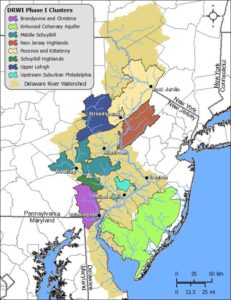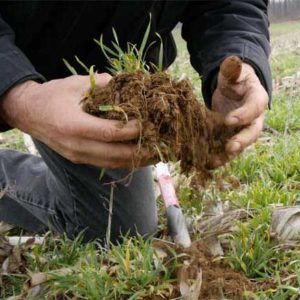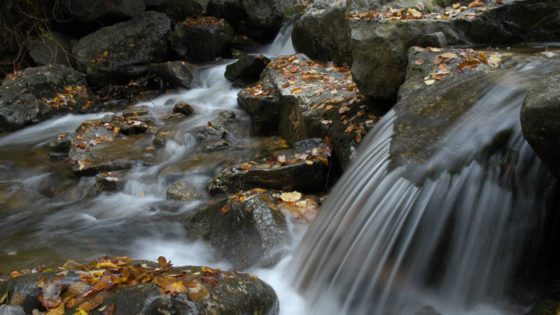
The National Fish and Wildlife Foundation (NFWF) has announced the 2019 federal grants and private matching awards for conservation projects throughout the Delaware River Watershed, including more than $1.9 million awarded to Stroud Water Research Center for watershed restoration projects.
Created by Congress in 1984, NFWF protects and restores our nation’s fish and wildlife and their habitats by directing public conservation dollars to the most pressing environmental needs and matching those investments with private funds.
Reducing Threats to Water Quality
The Stroud Center and more than 50 other leading nonprofits are working together through the Delaware River Watershed Initiative (DRWI) to reduce threats to water quality for the 15 million people — more than 5 percent of the U.S. population — who get their drinking water from the Delaware River basin.
The DRWI targets eight carefully selected subwatersheds, or clusters, that make up 25 percent of the Delaware River basin and are of critical ecological value. A science-informed evaluation under DRWI showed that while these clusters face significant threats to water quality, the opportunity for successful intervention is significant at these locations.
Implementing Forested Buffers and Soil Health Practices
The newly announced funds will allow the Stroud Center to build upon previous DRWI work with the following watershed restoration projects:
 Install more than 90 structural agricultural best management practices on more than nine farms in the Middle Schuylkill focus areas of the Delaware River Watershed Initiative cluster. Project will install 35 acres of forested buffers, pilot a cost-share program for soil health transition to enable producers to try new or improved cover crops and no-till acres, and leverage funding for outreach and technical assistance.
Install more than 90 structural agricultural best management practices on more than nine farms in the Middle Schuylkill focus areas of the Delaware River Watershed Initiative cluster. Project will install 35 acres of forested buffers, pilot a cost-share program for soil health transition to enable producers to try new or improved cover crops and no-till acres, and leverage funding for outreach and technical assistance.- Implement agricultural best management practices and install at least 30 acres of forested buffers with nine landowners in the Brandywine-Christina focus areas of the Delaware River Watershed Initiative cluster. Project will pilot a cost-share program for soil health to enable producers to implement cover crop and no-till practices and work with over eight farms, totaling 400 acres, to support producer success.



